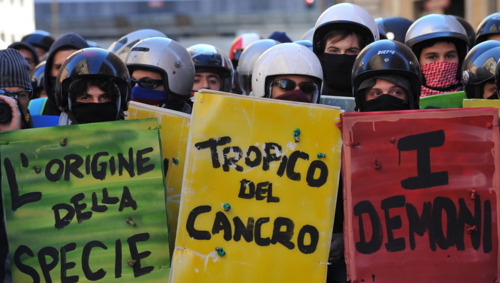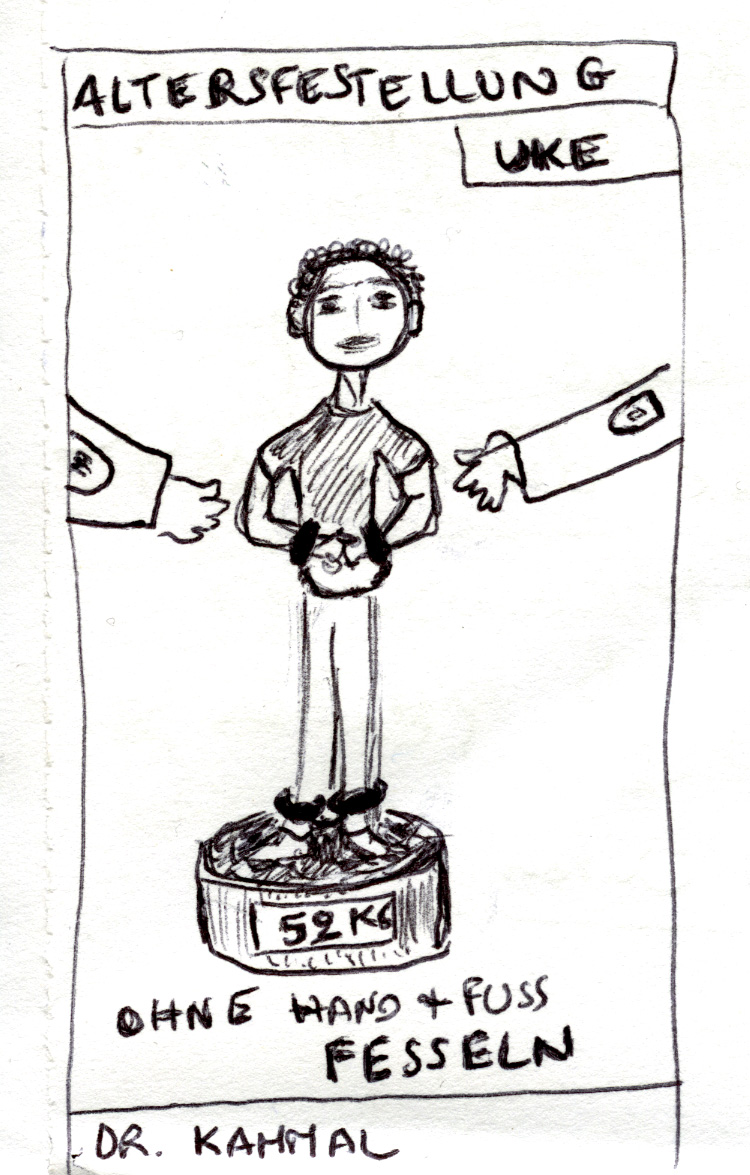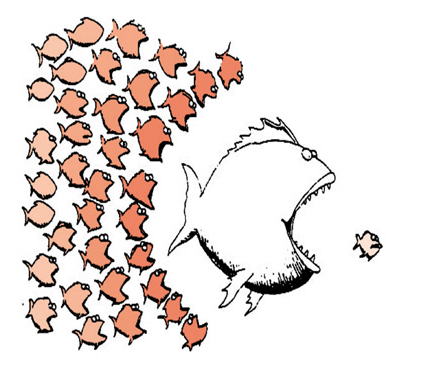Privatisation and Criminal Justice: Dominique Strauss-Kahn
 One detail of the Dominique Strauss-Kahn case that is reported matter-of-factly actually sounded quite unusual and disturbing to me. As now commonly known, Mr. Strauss-Kahn was released from custody in the notorious Rikers Island prison in New York on bail of $ 1,000,000 (plus $ 5,000,000 in insurance guarantees) and is under house arrest in a Manhattan apartment. So far, so standard procedure. Now awaiting prosecution for attempted rape and six other counts, he may not leave New York and is being guarded 24/7 by a private security company. That’s right, a private security company. And this private security company is not being paid by the city of New York, but by Strauss-Kahn himself. Read more
One detail of the Dominique Strauss-Kahn case that is reported matter-of-factly actually sounded quite unusual and disturbing to me. As now commonly known, Mr. Strauss-Kahn was released from custody in the notorious Rikers Island prison in New York on bail of $ 1,000,000 (plus $ 5,000,000 in insurance guarantees) and is under house arrest in a Manhattan apartment. So far, so standard procedure. Now awaiting prosecution for attempted rape and six other counts, he may not leave New York and is being guarded 24/7 by a private security company. That’s right, a private security company. And this private security company is not being paid by the city of New York, but by Strauss-Kahn himself. Read more


 During the ‘Golden Age’ of piracy in the 17th and 18th centuries, crews of early proletarian rebels, dropouts from civilization, plundered the lucrative shipping lanes between Europe and America. They operated from land enclaves, free ports; ‘pirate utopias’ located on islands and coastlines as yet beyond the reach of civilization. From these mini-anarchies – ‘temporary autonomous zones’ – they launched raiding parties so successful that they created an imperial crisis, attacking British trade with the colonies, and crippling the emerging system of global exploitation, slavery and colonialism. Read more about
During the ‘Golden Age’ of piracy in the 17th and 18th centuries, crews of early proletarian rebels, dropouts from civilization, plundered the lucrative shipping lanes between Europe and America. They operated from land enclaves, free ports; ‘pirate utopias’ located on islands and coastlines as yet beyond the reach of civilization. From these mini-anarchies – ‘temporary autonomous zones’ – they launched raiding parties so successful that they created an imperial crisis, attacking British trade with the colonies, and crippling the emerging system of global exploitation, slavery and colonialism. Read more about 
 The net needs alternatives to corporate social networks like Facebook because social networking and digital communications technologies are now critical to people fighting to make freedom in their societies or simply trying to preserve their privacy. But corporate services and other parts of the Net are intensively surveilled by profit-seekers and government agencies. Because smartphones, mobile tablets, and other common forms of consumer electronics are being built as “platforms” to control their users and monitor their activity. Freedom Box exists to counter these unfree “platform” technologies that threaten political freedom. Freedom Box exists to provide people with privacy-respecting technology alternatives in normal times – like Facebook alternative
The net needs alternatives to corporate social networks like Facebook because social networking and digital communications technologies are now critical to people fighting to make freedom in their societies or simply trying to preserve their privacy. But corporate services and other parts of the Net are intensively surveilled by profit-seekers and government agencies. Because smartphones, mobile tablets, and other common forms of consumer electronics are being built as “platforms” to control their users and monitor their activity. Freedom Box exists to counter these unfree “platform” technologies that threaten political freedom. Freedom Box exists to provide people with privacy-respecting technology alternatives in normal times – like Facebook alternative 

 Communia
Communia The
The 

